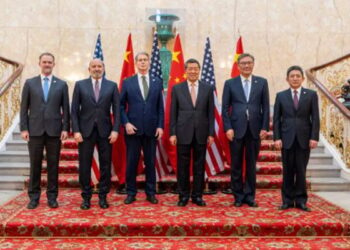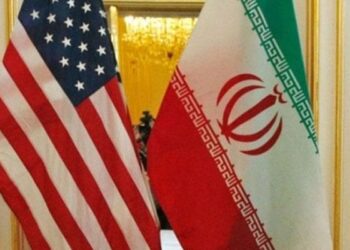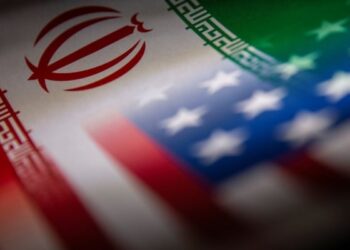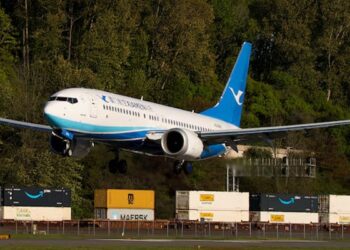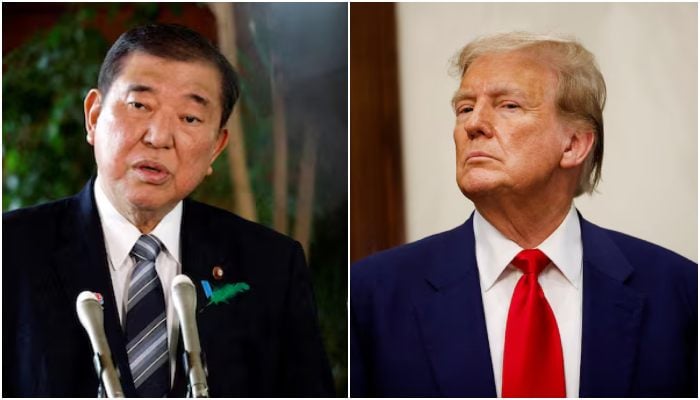
- PM Ishiba hints at potential purchase of additional US energy.
- Finance Minister to confer on currency policies with US Treasury official.
- Kato dismisses the idea of using US Treasury holdings as negotiation leverage.
TOKYO: Japanese Prime Minister Shigeru Ishiba has emphasized the importance of “fairness” in any discussions with the administration of US President Donald Trump regarding exchange rates. This point arises as bilateral trade negotiations capture international attention amidst Washington’s tariff initiatives.
In a segment on the public broadcaster NHK, Ishiba suggested that Japan might increase its purchases of US energy and hinted at a possible resolution regarding US claims of non-tariff barriers affecting the Japanese automobile sector.
President Trump made a surprise appearance during the initial phase of US-Japan negotiations on Wednesday, declaring that “significant progress” has been made. He reiterated his desire for discussions to include allegations that Japan is purposefully devaluing its currency to unfairly benefit its exporters.
Ishiba stated that detailed conversations regarding currency policy will be conducted between Finance Minister Katsunobu Kato and Treasury Secretary Scott Bessent.
“We must approach this matter from a perspective of fairness,” Ishiba remarked when asked about Japan’s potential response to US requests for cooperation in elevating the yen’s value. He chose not to elaborate further.
Japan has consistently dismissed claims of manipulating the yen. Over the years, it has fought to maintain a robust currency to support its export-driven economy but only last intervened in the foreign exchange market last year to strengthen the yen.
Kato is scheduled to travel to Washington this week for a meeting with G20 finance ministers in conjunction with the International Monetary Fund’s (IMF) spring session. He is expected to engage in bilateral trade discussions with Bessent.
US Energy Imports
Some experts suggest that Japan might leverage its substantial US Treasury holdings—exceeding $1 trillion, the largest globally—as a trade negotiation tool. However, Kato recently ruled out using these assets in such a manner.
“This is founded on mutual trust between our nations, as well as on the stability of the global economy and our own economies,” Ishiba explained when asked about the possibility of referencing US debt holdings during the negotiations.
Although Japan is currently facing a 24% tariff on its exports to the US under Trump’s administration, these tariffs have been temporarily suspended until early July. A universal rate of 10% remains, along with a 25% duty on automobiles, which are crucial to Japan’s economy.
Nikkei Asia reported recently that Japan is contemplating relaxing automobile safety regulations for imports as part of its negotiation strategy with the US. Washington has long claimed that Japan’s safety standards constitute a non-tariff barrier, while the Japanese government and industry experts argue that US automakers do not produce vehicles suited for Japanese roads and driving conditions.
In response to such accusations, Ishiba acknowledged the differences between US and Japanese traffic and safety regulations but emphasized the importance of ensuring Japan’s safety standards aren’t deemed unfair.
He also expressed a willingness to increase Japanese investments in the US, especially in the energy sector.
“Currently, Australia is Japan’s top supplier of liquefied natural gas, with the US ranking fourth. There is certainly potential for increased purchasing. However, the key question is whether the US can provide this energy consistently,” he noted.

